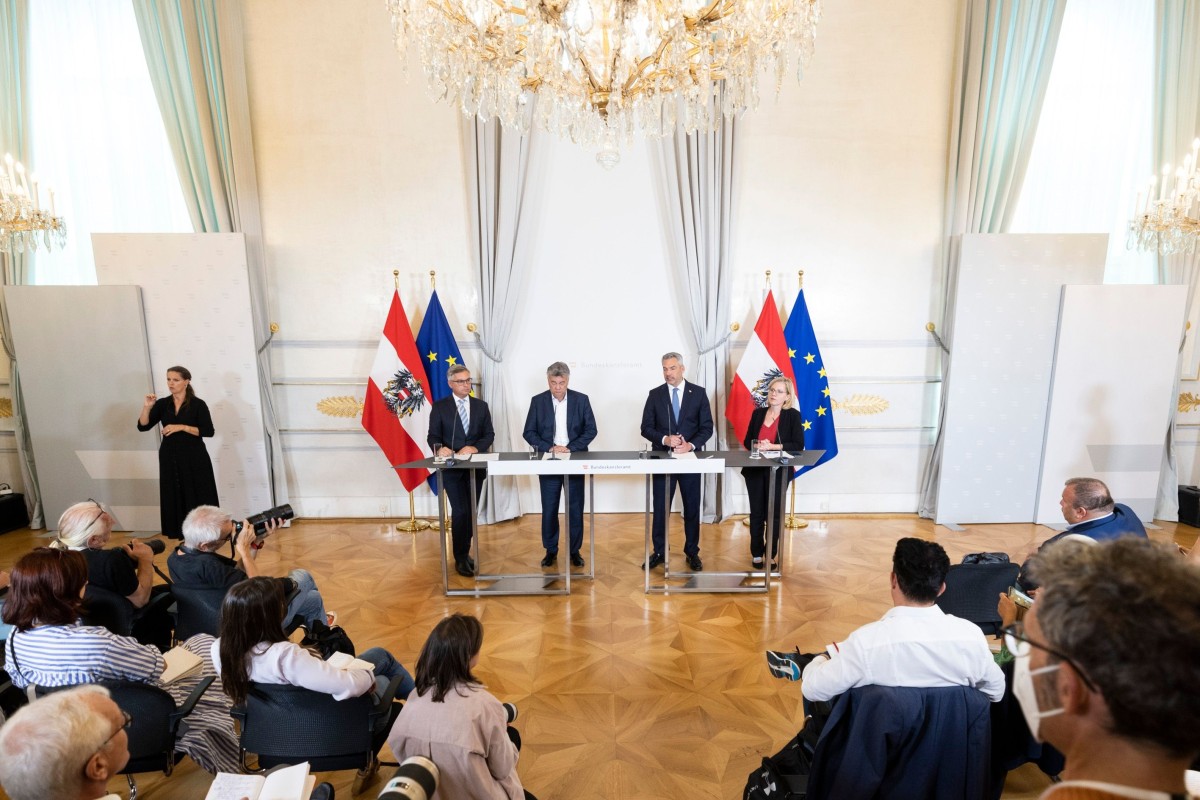Sponsored Content
Austrian Government has Agreed on Electricity Price Brake
The Austrian federal government has agreed on the long-discussed "electricity price brake" to cushion the high cost of energy. According to information from the federal government, each household will pay a lower electricity price for that share of electricity consumption which corresponds to 80 percent of the average consumption of an Austrian household in the previous year.
 Chancellor Karl Nehammer (middle right), Vice-Chancellor Werner Kogler (middle left), l Minister Leonore Gewessler (right), and Minister Magnus Brunner (left) announced the electricity price brake. / Picture: © Bundeskanzleramt (BKA) / Christoper Dunker
Chancellor Karl Nehammer (middle right), Vice-Chancellor Werner Kogler (middle left), l Minister Leonore Gewessler (right), and Minister Magnus Brunner (left) announced the electricity price brake. / Picture: © Bundeskanzleramt (BKA) / Christoper Dunker
"No one in Austria should not be able to afford their basic electricity needs. This is the most important goal of the electricity price brake that we adopted in today's Council of Ministers. With this, we are implementing another aid measure against inflation," said Chancellor Karl Nehammer following the meeting of the Council of Ministers.
The government showed unity today to…
or Log In
Fast News Search





